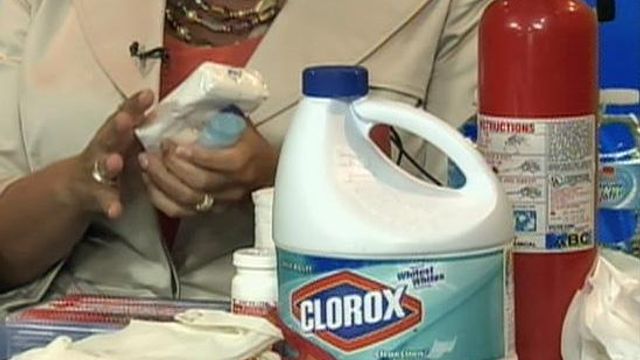Get ready before a hurricane strikes
Learn what to put in your hurricane-survival kit, what to do around the house before the storm and how to survive afterwards.
Posted — UpdatedNearly a third of people don't plan to evacuate for a hurricane, even if told to by the government, according to a 2007 survey. But an accompanying statistic also raises alarm bells: Sixty-eight percent of North Carolinians said they don't have a hurricane kit ready.
After a hurricane hits, many people don't have power for more than a week, so your kit should start with flashlights and batteries. Also think about a battery operated radio.
Pack food items that will you get through such an ordeal – instant coffee, chocolate, non-perishable food, bottled water and a can opener.
Be sure to include a change of change of clothes.
Don't forget your pets; pack food for them, and remember that most shelters don't accept pets.
Before any storm, take a tour of the outside of your house, and look for any potential problems, such as tree limbs close to your house or power lines. Put away patio furniture, and remove screens before a storm strikes.
Locate the cut-offs for all your utilities. You might need to turn off your electricity or water during a hurricane.
Fill up your vehicles and grill with gast. That grill might all with which you have to cook.
Right before the storm, make sure your cell phone is fully charged, and fill your bathtub with water.
If you rely on a generator during the storm, take care to hook it up correctly. Never use one indoors, even in a garage or carport, and keep them away from windows, doors and vents that could let fumes indoors. Be sure to turn the generator off, and let it cool before refueling.
In 2005, 28 people died from carbon-monoxide poisoning during Hurricanes Dennis, Katrina, Rita and Wilma.
After the storm, it's easy to get overwhelmed by the damage, so keep your guard up and be wary of contractors who knock on your door, offering to help.
Don't feel pressured to make a decision. Make sure the contractors are licensed and insured. Put your work agreement in writing, and do not pay more than 10 percent up front.
• Credits
Copyright 2024 by Capitol Broadcasting Company. All rights reserved. This material may not be published, broadcast, rewritten or redistributed.





